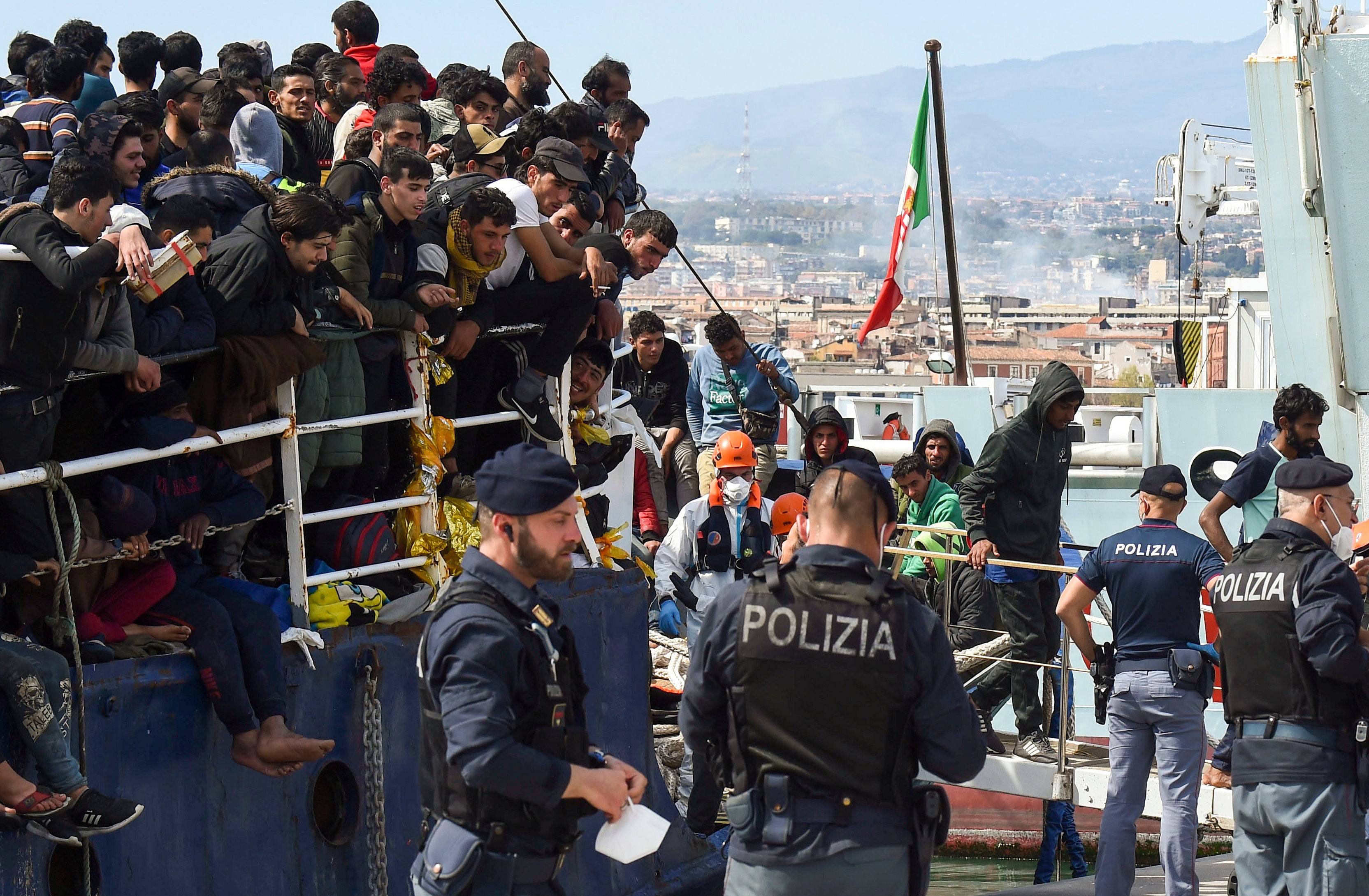Dutch court bars return of African migrants to Italy
The Netherlands’ top administrative court has ruled that immigration authorities can't send migrants back to Italy because they face possible human rights violations there

The Netherlands' top administrative court ruled Wednesday that immigration authorities can't send migrants back to Italy, because they face possible human rights violations there — a decision that will likely put further pressure on the strained Dutch asylum system.
The ruling came in cases brought by two migrants, a Nigerian and a man who claims to be from Eritrea. Both entered Europe via Italy. The Nigerian applied for asylum three times in Italy before applying in the Netherlands, and the other man arrived in Italy but didn't seek asylum there, according to the Council of State.
Successive Italian governments have pressed their European Union partners for years, largely in vain, to take in many of the hundreds of thousands of asylum-seekers who reach Italy’s Mediterranean shores. Most risk the dangerous, expensive sea voyage in hopes of finding family or work in northern Europe, but EU rules require them to apply for asylum in the country where they landed.
The Dutch court said that, since December, Italian authorities have indicated that this rule should be suspended because of a lack of reception facilities for migrants in Italy.
“Without reception, there is a genuine risk that their basic needs, such as shelter, food and running water, will not be met, which is a human rights violation,” the Council of State said in a statement.
The decision will likely serve as a precedent and prevent the return to Italy of other migrants who sought asylum in the Netherlands after traveling through Italy. That will likely compound existing problems at overcrowded Dutch asylum centers.
“This doesn't help,” the Dutch junior minister in charge of migration, Eric van der Burg, told Dutch broadcaster NOS. “Italy is, of course, an important country where many people arrive.”
Last summer migrants were forced to sleep outdoors in unsanitary conditions near a reception center in the northern Netherlands village of Ter Apel, because there was no room for them indoors. Prime Minister Mark Rutte said earlier this month that he couldn't rule out similar scenes this year.
The Dutch government sought last year to cut the number of migrants entering the Netherlands by restricting family members from joining asylum-seekers who have been granted residency, but the move was scrapped after courts ruled it unlawful.
___
Follow AP’s coverage of global migration at https://apnews.com/hub/migration
Bookmark popover
Removed from bookmarks